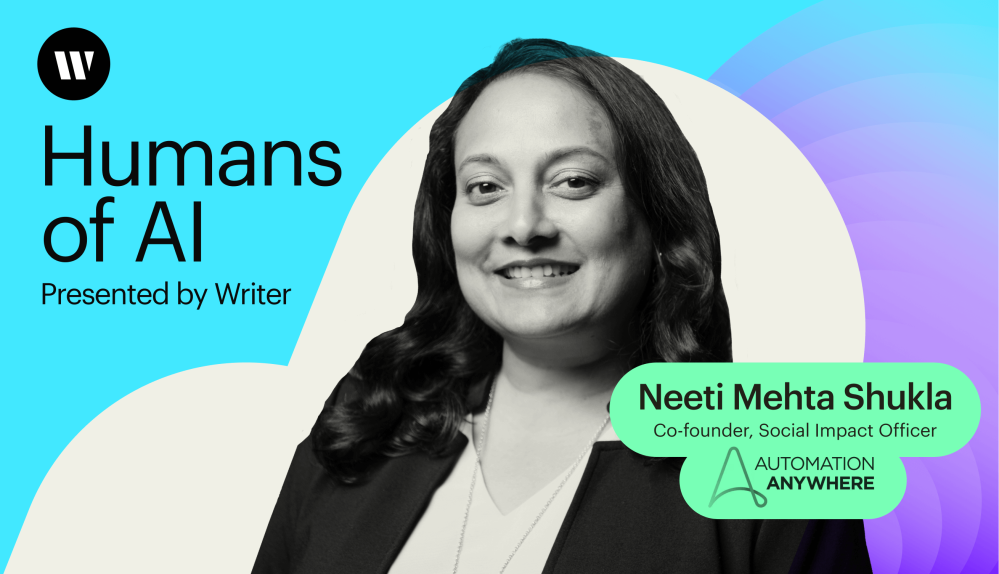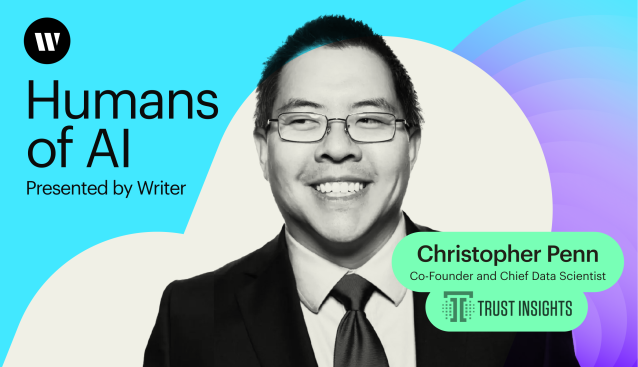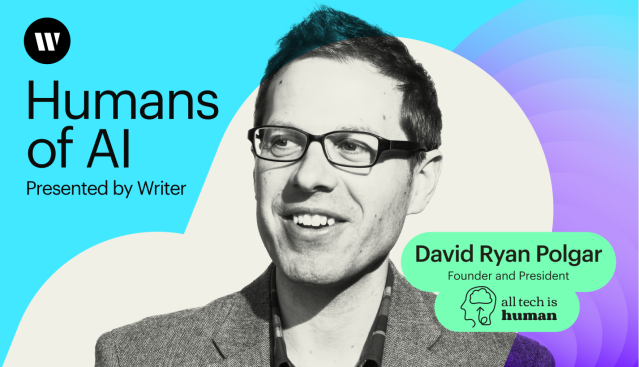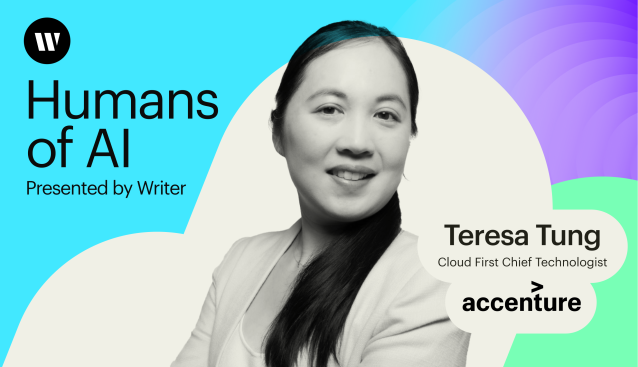Humans of AI
– 9 min read
Paying social impact forward with Automation Anywhere’s Neeti Mehta Shukla

Change and reinvention play an indispensable role in growth. To pave the way for a more equitable and inclusive world, we must dare to transcend the present moment’s limitations and envision a future where rules and processes can be improved.
In today’s episode of Humans of AI, we have the privilege of speaking with Neeti Mehta Shukla. Neeti is the Co-Founder and Chief Social Impact Officer of Automation Anywhere, a software platform that helps companies identify and build intelligent automation into their business processes. Neeti is leading the charge in bridging the inclusivity gap, and ensuring that the benefits of technology are accessible to all.
Join us as we delve into how Neeti’s unwavering belief in the boundless potential of humanity has driven her to challenge the existing norms and revolutionize not only her own career path but also empower others to reimagine and redefine the way they work.
- Neeti highlights the importance of recognizing the opportunities and privileges that come with living in an era of unprecedented technological advancements.
- She notes that the rapid advancement of technology, particularly AI, presents an opportunity to bridge societal gaps and promote inclusivity and diversity.
- She stresses the importance of reskilling and upskilling in this digital era.
- Digital inclusion will start a ripple effect that results in AI products and services being more inclusive.
The power of maverick thinking for a life of innovation
When we asked Neeti what she thinks the throughline of her story is, she told us “the power of maverick thinking.” Maverick thinking refers to the act of approaching problems and making decisions in a unique, unconventional, and sometimes controversial way. It involves breaking away from traditional or mainstream ideas and challenging the status quo.
Growing up in India in a time when most families supported traditional gender roles, Neeti didn’t let societal norms define her possibilities. She believed that everything was possible and refused to be confined by traditional expectations.
“I didn’t think of myself as a girl in India, living in a city, at this time of life. Nothing defined me. So that lack of definition was fantastic because I believed everything was possible,” Neeti shares. “I didn’t think that I was surpassing anything or breaking a glass ceiling or thinking differently than other women at that point, or believing what was possible, or not possible.”
Providing children with an upbringing that rejects traditional and predictable patterns of thinking and fosters the art of possibilities is crucial for the future, Neeti believes. Believing in oneself is half of the battle.
Bridging the inclusivity gap with technology leadership
Based on the latest report from UN Women, it’ll take 286 years to achieve gender equality at the current pace of progress. Rapid advancements in technology — particularly in the fields of machine learning, robotic process automation, and generative AI — present a unique opportunity to bridge societal gaps that have persisted for centuries. Neeti says that if we seize this opportunity and approach it through a combination of leadership, upskilling, and reskilling, we can speed up the timeline toward greater social equity.
“If we do this right, we can reduce that 100-year timeline to a much smaller number,” Neeti predicts. “It’s about giving that inclusivity, learning, and leadership capabilities to women now so that they can actually bridge that gap.”
Neeti envisions a future where women aren’t only actively involved in new technologies but also hold leadership positions within them. This, she believes, will lead to the development of technologies with a more diverse and inclusive mindset, both in terms of data and strategy.
Reinventing through social impact
Neeti’s journey at Automation Anywhere took a transformative turn when she pivoted from leading marketing to focusing on brand development and culture. Neeti led efforts to create a culture of growth and development by highlighting human qualities and values in a software robotics company. This shift allowed her to lay the foundation for her three pillars of impact: reskilling and upskilling, bringing technology to nonprofits, and community involvement.
Neeti believes in providing inclusive and diverse opportunities for individuals to learn and adapt to new technologies through reskilling and upskilling. By bringing in people from different industries and backgrounds, she aims to bridge the gap in gender equality and diversity, ensuring that everyone has the chance to thrive in the digital age.
The second pillar involves bringing Automation Anywhere’s platform and technology to nonprofits. Neeti says, “The leadership here really believed nonprofits should be using this technology to do more. Look at the climate refugees we’ve had over the last few years. The nonprofit world in itself could do more because society needs more if we are able to enable them with these technologies.”
The third pillar is community involvement. Neeti believes in the power of giving back and encourages Automation Anywhere employees to actively contribute to the communities they live and work in. By fostering a culture of community engagement, Neeti aims to create a positive impact beyond the boundaries of the organization.
“We have an opportunity to become more inclusive as society if we concentrate on reskilling, and upskilling,” Neeti summarizes. “And if we bring attention to nonprofits productivity and efficiency gains. Hopefully we can leapfrog a lot of biases, a lot of societal problems, and really enable our technology to leave a lasting impact.”
Driving diversity through digital inclusion
Digital inclusion is a great tool that can make the world fairer. It makes sure that people and communities everywhere can use and benefit from digital technologies. Using digital tools and being online can help people learn, work, and connect with others. It also gives them more control over their lives. Digital inclusion is important because it helps to reduce inequality and gives everyone a chance to succeed in the digital age. It opens doors for diverse populations to participate in upskilling programs and gain essential technological skills. Learning to use computers, different technologies, automation tools, and generative AI tools becomes a pathway to becoming part of the digital ecosystem. When we prioritize digital inclusion, we create a ripple effect.
“The more inclusive the digital inclusion, the more inclusive the data sets,” Neeti explains. “The more inclusive the data sets, the more inclusive the products and services that come out of artificial intelligence.”
By including individuals from different backgrounds, socioeconomic statuses, and geographic locations, digital inclusion helps capture a wider range of perspectives, experiences, and linguistic nuances in the data. This diversity in training data improves the accuracy, contextual understanding, and customization capabilities of generative AI models for businesses.
When more people are included in the digital ecosystem, it minimizes the risk of biased or skewed data that can perpetuate inequalities or reinforce existing biases. This inclusive approach isn’t only a responsibility, but also a privilege that tech firms, governments, societies, and communities are actively working towards.
“One of the biggest motivators for all humans is other humans,” Neeti says. “When you hear their stories of how they are trying to become part of this ecosystem and how they’re trying to change their lives and their communities, it’s superbly inspiring.”
Upskilling and reskilling for organizational growth
Automation Anywhere has embarked on initiatives to train and empower individuals from diverse backgrounds, including members of marginalized communities, single moms, and refugees, to transition into tech jobs and improve their lives.
“If we can bring that training and reskilling and help pave that way a little bit easier for these folks, that inclusivity will serve all of us. It serves all of us with better products and services. It serves all of us with better technology, more responsible technology, more ethical technology. I think it’s not just a responsibility, it’s a privilege.”
Through partnerships with social organizations, Automation Anywhere has provided opportunities for individuals facing economic challenges to upskill themselves and secure high-paying tech jobs.
“We’ve trained folks who literally have gone from flipping burgers at McDonald’s to $120,000 tech jobs in three to six months,” Neeti explains. “If you just give them that opportunity to upskill themselves, humans will always surprise you. And in a good way, in a really good way.”
Upskilling not only enhances individual performance but also boosts overall productivity and efficiency, enabling organizations to stay ahead of the curve and drive innovation. It also helps organizations future-ready their workforce. By equipping employees with the skills necessary to navigate technological advancements, organizations can adapt to changing market demands and seize new opportunities.
“As a strategic leader of any large organization, we need to look at how we can help our employees upskill, reskill, and understand how these new technologies will help and aid them in the work that they do,” Neeti shares. “It gives you a competitive advantage and brings your communities up. So, to me, it’s a win-win if you can help transition and upskill your employees.”
Technology as a catalyst for positive change
Neeti shared a story of working with a volunteer-run organization in Ukraine. Automation Anywhere developed a bot with another social nonprofit to automate the process of taking in aid requests on the ground for IDPs (internally displaced persons).
“We were able to increase by 400% a day the number of aid requests they could take in. We were able to serve 32,000 more people in that same timeframe than we could have otherwise,” Neeti explains. “Now, to me that isn’t just a need — it’s an imperative need, and it’s a need that’s time-bound. It’s an organization that has to deliver if we believe here in humanity, and technology was able to enable it to do so.”
As technology continues to advance, organizations must embrace automation and intelligent solutions to free up human resources and empower their workforce to make a meaningful impact. Neeti believes that if we can use technology responsibly and ethically, we can create a future where humans and machines work together harmoniously.
“My bet is on humans, always. I think humans are capable of great imagination, great strategy, and great vision,” Neeti says. “If you enable humans to take away some of the repetitive and mundane work, and then really rely on that technology to be intelligent enough to deliver it well. we are capable of such greatness.”
Neeti’s story serves as an inspiration for all of us to challenge the status quo, embrace our own maverick nature, and leverage technology to create positive change. Hers is a story of recognizing overlooked people or moments, and empowering them with the proper tools to succeed. In this new digital age, one of those tools is AI.
Want to hear more stories from the humans working at the crossroads of business and generative AI? Subscribe to Humans of AI wherever you listen to podcasts.




